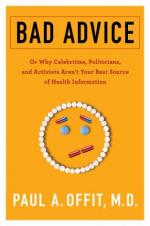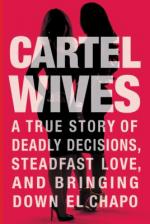July 17, 2018 | kasarak
The 360s of the Library's non-fiction collection encompasses a wide variety of subjects. Volunteerism, healthcare, elder care, homelessness, gun control, environmental concerns, organized crime, fraud, and crimes and trials are just a few of the topics that can be found on the shelf.
Below is a sampling of new titles purchased for the collection.
In Bad Advice, Paul A. Offit shares hard-earned wisdom on the dos and don’ts of battling misinformation. For the past twenty years, Offit has been on the front lines in the fight for sound science and public heath. Stepping into the media spotlight as few scientists have done―such as being one of the first to speak out against conspiracy theories linking vaccines to autism―he found himself in the crosshairs of powerful groups intent on promoting pseudoscience. Bad Advice discusses science and its adversaries: not just the manias stoked by slick charlatans and their miracle cures but also corrosive, dangerous ideologies such as Holocaust and climate-change denial. Written with wit and passion, Offit’s often humorous guide to taking on quack experts and self-appointed activists is a must-read for any American disturbed by the uptick in politicized attacks on science
Olivia and Mia Flores are married to the highest level drug traffickers ever to become US informants. Their husbands worked with--and then brought down--El Chapo, as well as dozens of high-level members of the Mexican cartels. They had everything money could buy: luxury cars, huge houses, and expensive jewelry--but they chose to give it all up when they cooperated with the US government. They knew that life was about more than wealth; it was about love, family, and doing what's right. CARTEL WIVES is a love story, a "Married to the Mob" story, an insider's look into the terrifying but high-flying empire of the new world of drugs, and, finally, the story of a major DEA and FBI operation.
Through a series of disastrous decisions, the state government had switched the city’s water supply to a source that corroded Flint’s aging lead pipes. Complaints about the foul-smelling water were dismissed: the residents of Flint, mostly poor and African American, were not seen as credible, even in matters of their own lives.
In the first full account of this American tragedy, The Poisoned City recounts the gripping story of Flint’s poisoned water through the people who caused it, suffered from it, and exposed it. It is a chronicle of one town, but could also be about any American city, all made precarious by the neglect of infrastructure and the erosion of democratic decision making. Places like Flint are set up to fail―and for the people who live and work in them, the consequences can be fatal.
In 1985, Anthony Ray Hinton was arrested and charged with two counts of capital murder in Alabama. Stunned, confused, and only twenty–nine years old, Hinton knew that it was a case of mistaken identity and believed that the truth would prove his innocence and ultimately set him free.
But with no money and a different system of justice for a poor black man in the South, Hinton was sentenced to death by electrocution. He spent his first three years on Death Row at Holman State Prison in agonizing silence―full of despair and anger toward all those who had sent an innocent man to his death. But as Hinton realized and accepted his fate, he resolved not only to survive, but find a way to live on Death Row. For the next twenty–seven years he was a beacon―transforming not only his own spirit, but those of his fellow inmates, fifty–four of whom were executed mere feet from his cell. With the help of civil rights attorney and bestselling author of Just Mercy, Bryan Stevenson, Hinton won his release in 2015.
With a foreword by Stevenson, The Sun Does Shine is an extraordinary testament to the power of hope sustained through the darkest times. Destined to be a classic memoir of wrongful imprisonment and freedom won, Hinton’s memoir tells his dramatic thirty–year journey and shows how you can take away a man’s freedom, but you can’t take away his imagination, humor, or joy.
Drawing on their extensive clinical experience as founding members of premier national organizations that serve adopted children and their families, the authors of this book describe the typical presenting behavioral problems of adopted children, as well as the underlying issues contributing to these problems that uniquely affect adoptive families. These include concerns related to parent child attachment, loss and grief, trauma, the child’s understanding of his or her adoption “story,” identity development, and birth family connections. Therapy sessions deliver evidence based child coping strategies and positive parenting approaches that are tailored to account for the child’s past history, alongside resiliency focused, trauma competent, attachment based treatment. The book’s companion website provides free in-session handouts for practitioners.
The incredible true story of the US Post Office Inspector who took down the deadly Black Hand, a turn-of-the-century Italian-American secret society that preyed on immigrants across America’s industrial heartland—featuring fascinating and never-before-seen documents and photos from the Oldfield family’s private collection.
Edgar Laplante was a smalltime grifter, an erstwhile vaudeville performer, and an unabashed charmer. But after years of playing thankless gigs and traveling with medicine shows, he decided to undertake the most demanding and bravura performance of his life. In the fall of 1917, Laplante reinvented himself as Chief White Elk: war hero, sports star, civil rights campaigner, Cherokee nation leader—and total fraud.
In King Con, Paul Willetts brings this previously untold story to life in all its surprising absurdity, showing us how our tremendous capacity for belief and our longstanding obsession with celebrity can make fools of us all—and proving that sometimes truth is stranger than fiction.
The Peace Corps Volunteer’s Handbook is both your guide and your companion. Learn from the experiences of outstanding former Volunteers, while cataloging your own experiences with the Peace Corps from the very beginning of your service to the end.
Designed to be with you each step of the way—from applying to Peace Corps, starting your service, adjusting to your host country, and making your way home again—this handbook combines the best parts of a guidebook with all the creativity of a personal journal.
The first book of its kind in North America, Queering Social Work Education combines LGBTQ history and personal narratives from a diverse range of queer social work educators and students with much-needed analyses and recommendations. This book will help readers develop awareness, dismantle prejudice, and contribute positively to the future of social work education, research, policy, and practice.








